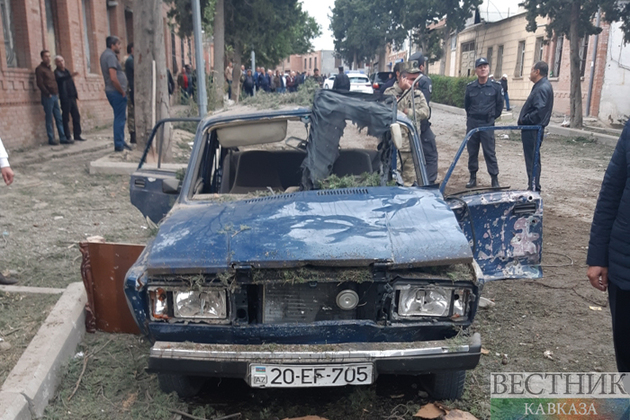Dozens of people have reportedly been killed and hundreds more wounded since fighting erupted between Azerbaijan and Armenia just over a week ago. International observers and analysts warn that, unlike during previous clashes along the two countries' shared border, it may be hard to negotiate peace this time, CBS reports in its article Why Armenia and Azerbaijan are fighting, and why it could get uglier.
Despite that ceasefire, skirmishes have continued along the so-called "line of contact" over the past three decades. The last serious flare-up was in 2016, when dozens of troops on both sides were killed. Then over this past summer tensions flared again, but this time, with a global pandemic distracting Europe and racial unrest and election year politics engulfing the U.S., there was no serious diplomatic effort made to deescalate the standoff.
On Thursday, the U.S., France and Russia condemned the fighting in Nagorno-Karabakh in a joint statement. Russian Foreign Minister Sergei Lavrov said last week that he had called the foreign ministers of both Armenia and Azerbaijan to say Russia was willing to host talks. On Monday, Iran, which sits just to the south of both countries, also offered to help.
The Trump administration also issued a unilateral statement last week calling on the warring sides to show restraint, but it was the last major international actor to respond — a possible sign of the extent to which the White House is focused on the upcoming election, at the expense of diplomacy. Armenian Prime Minister Nikol Pashinyan spoke on Thursday with President Trump's National Security Advisor Robert O'Brien. Pashinyan later told French TV and The New York Times that he had raised the alleged use of U.S.-supplied F-16 aircraft in the conflict by Turkey, purportedly in support of Azerbaijan. Washington's atypical disengagement in this instance could leave room for a further escalation of the conflict, according to Thomas de Waal, a senior fellow with the Carnegie Europe think tank. "The flare-up can also be seen as a symptom of a world in which the U.S. is no longer acting to defuse regional conflicts," de Waal wrote in a commentary published by last week by Politico Europe.
What is behind the dispute?
Armenia and Azerbaijan both used to be part of the Soviet Union, but since that crumbled, the new borders have remained in dispute. When Soviet Communist rule was nearing its end in the late 1980s, the mountainous region of Nagorno-Karabakh's autonomous legislature voted to join Armenia. As the Soviet Union dissolved, Nagorno-Karabakh proclaimed its independence, which led to a war with tens of thousands of casualties. It has not been recognized by any other country as an independent state. Internationally still recognized as part of Azerbaijan, Nagorno-Karabakh is predominantly populated by ethnic Armenians. The long-simmering conflict has been mediated by the "Minsk group," set up by the Organization for Security and Co-operation in Europe (OSCE) in 1994 and co-chaired by Russia, France and the United States. The hostilities that began at the end of September are said to be the worst since 1994, when the war ended with a ceasefire and Armenia taking control of the region.






